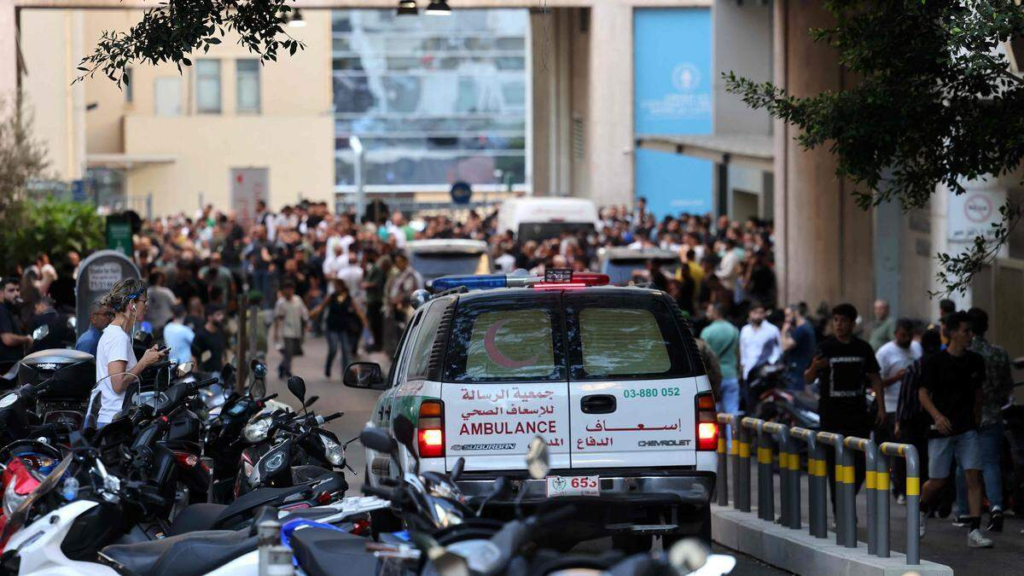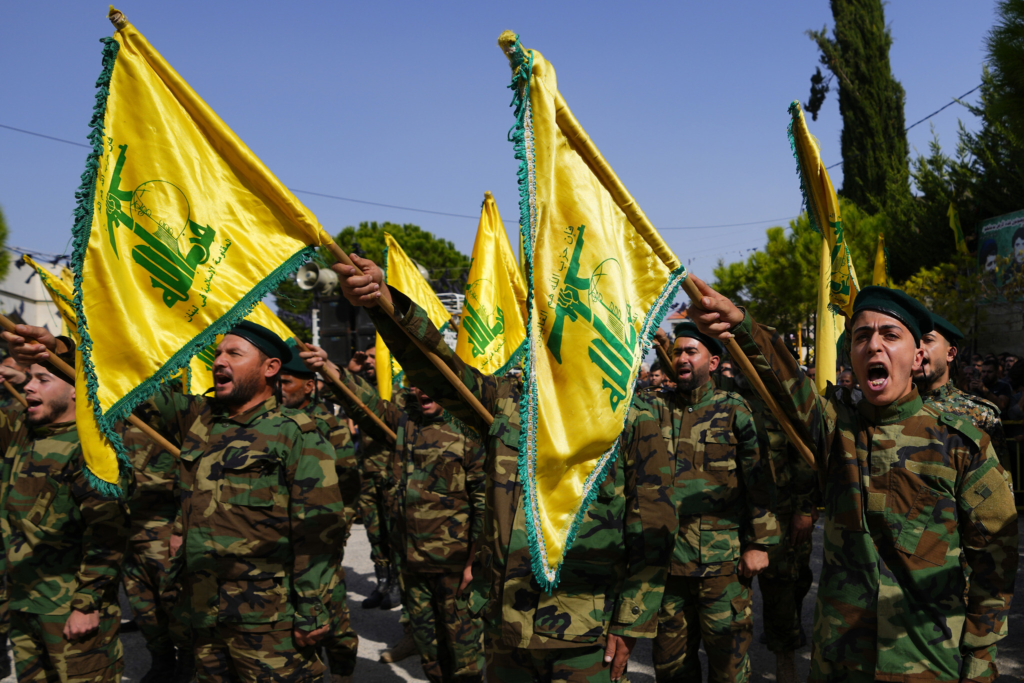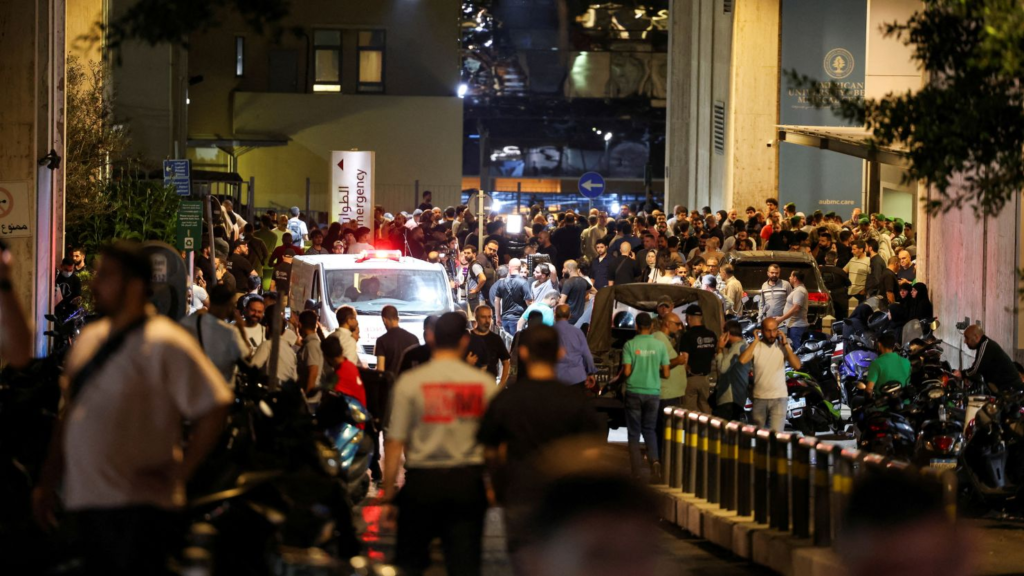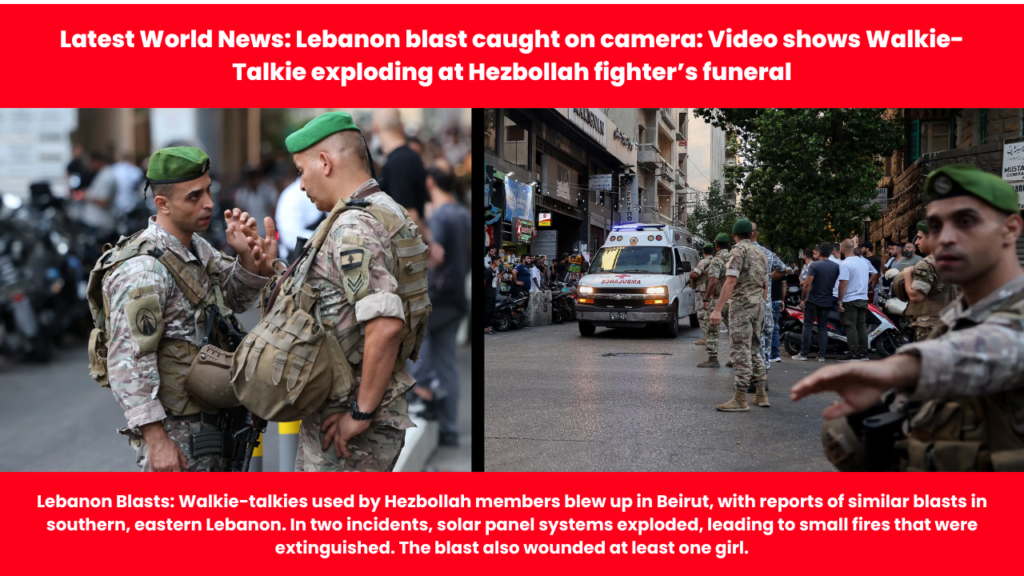Lebanon Blasts: The Middle Eastern country Lebanon was rocked by another wave of coordinated blasts on Wednesday, barely twenty four hours after a simultaneous pager explosion killed at least 12 people and injured over 2,800. A second wave of device blasts has killed nine people and wounded more than 300 in Lebanon, stoking fears of an all-out war in the Middle East.

According to state media, walkie-talkies used by Hezbollah members blew up in Beirut, with reports of similar blasts in southern and eastern Lebanon. Lebanon’s National News Agency also said in two incidents, solar panel systems also exploded, leading to small fires that were extinguished. This blast wounded at least one girl, Lebanese media reported.

The blasts coincided with a funeral in Beirut for three Hezbollah members and a child who died from the initial pager explosions. AP reported eyewitness account who confirmed multiple detonations during the ceremony.
Damage was also observed in the southern coastal city of Sidon, where a car and a mobile phone shop were affected, reported AP.

The mass explosions on Tuesday reportedly targeted pagers used by the Lebanese group while blasts today occurred in phones, laptops and walkie-talkies.
Hezbollah fighters indicated that the newly exploded walkie-talkies were used by the group, highlighting concerns over the infiltration of explosives into their supply chains.
The initial wave of bombings on Tuesday involved pagers used by Hezbollah members that unexpectedly detonated in various locations, including homes, grocery stores, and cafes.
This complex pager blast attack, attributed to Israel’s Mossad, resulted in at least 12 deaths, including two children, and left approximately close to 3,000 people wounded.

Small quantities of explosives, RDX, had been concealed within the pagers and detonated remotely, raising fears about further security breaches.
These recent events have intensified anxiety about the potential for escalation in the already volatile conflict between Israel and Hezbollah. US Secretary of State Antony Blinken stated that the situation is being closely monitored as officials assess the implications for ongoing negotiations regarding a ceasefire in the Israel-Hamas war in Gaza.

Israel began moving more troops to its border with Lebanon on Wednesday as a precautionary measure, according to an official with knowledge of the movements who spoke on condition of anonymity because he was not authorized to speak to the media.
Hezbollah and Israeli forces have exchanged fire almost daily since Oct. 8, the day after a deadly Hamas-led assault in southern Israel triggered the war.


